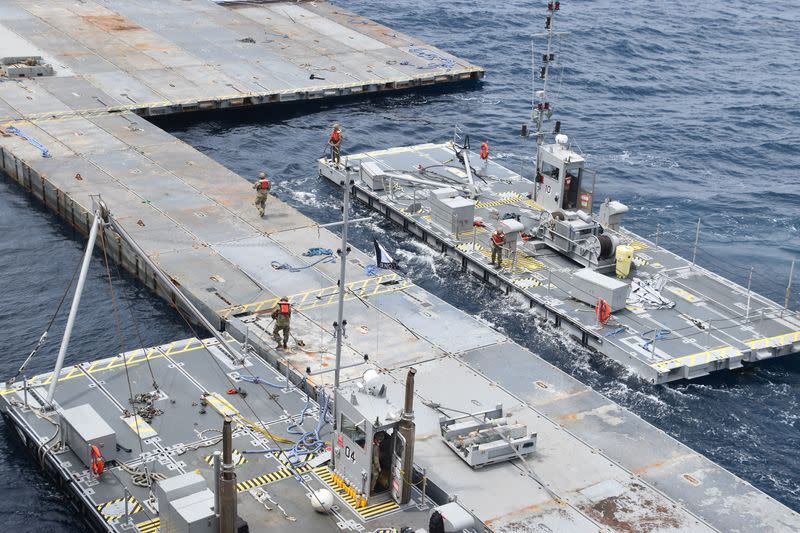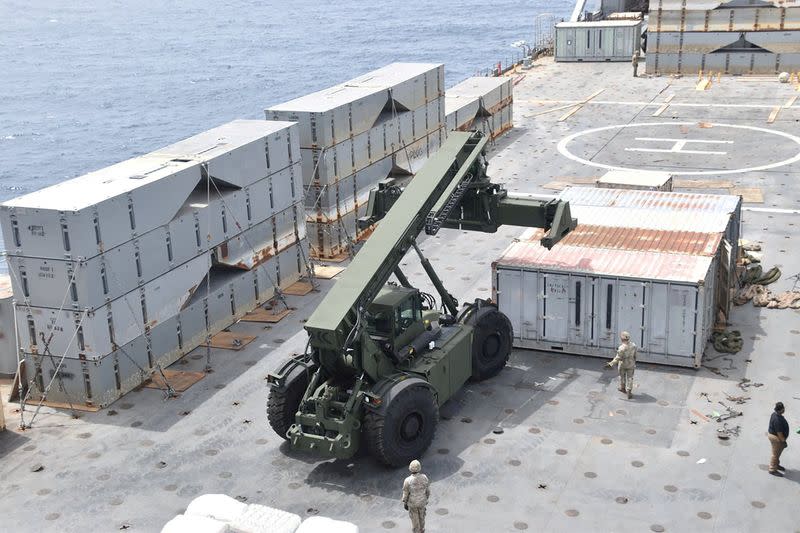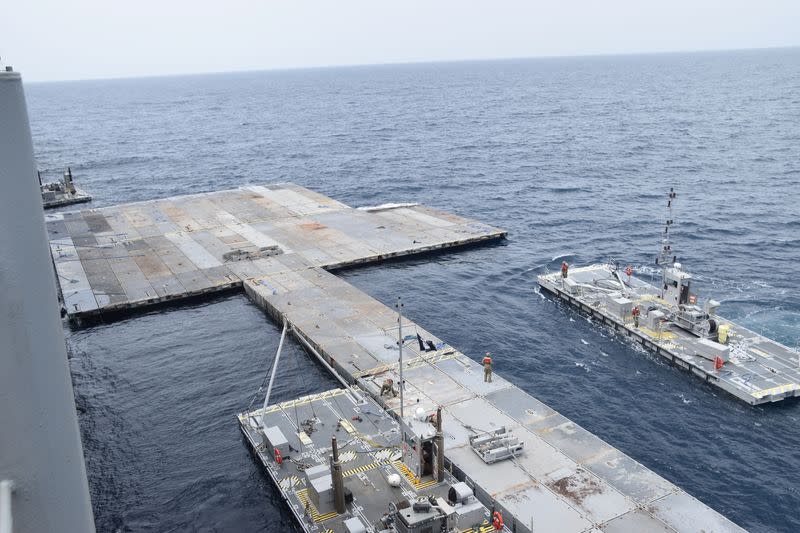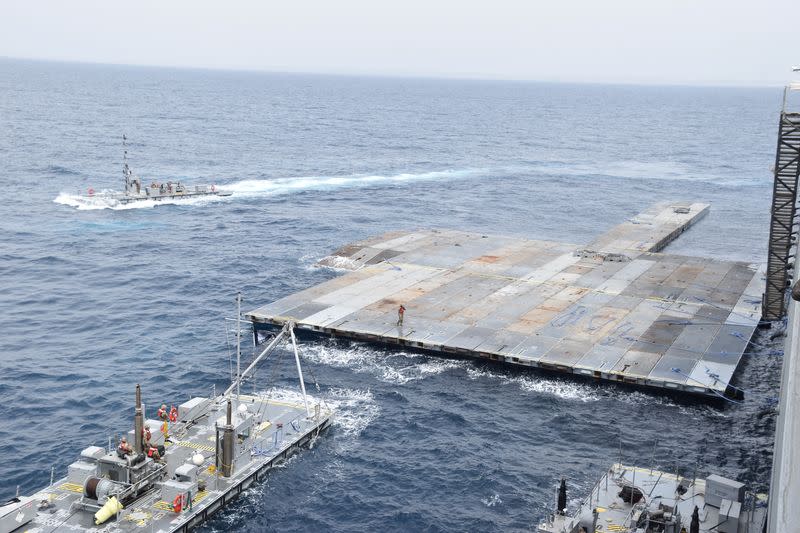US military pier starts moving towards Gaza
WASHINGTON (Reuters) - The U.S. military has started moving a pier towards the Gaza coast, a U.S. official said on Wednesday, one of the last steps before the launch of a maritime port promised by President Joe Biden to speed the flow of humanitarian aid to Palestinians.
The U.S. military opted to pre-assemble the maritime pier at Israeli port of Ashdod earlier this month due to weather conditions at the Gaza site where it will now be installed.
Officials hope the pier can be anchored to the coast of Gaza and aid can start flowing in the coming days.
"Earlier today, components of the temporary pier ... along with military vessels involved in its construction, began moving from the Port of Ashdod towards Gaza, where it will be anchored to the beach to assist in the delivery of international humanitarian aid," a U.S. official said.
A British shipment of nearly 100 tonnes of aid has left Cyprus bound for a new temporary pier in Gaza, the British Foreign Office said on Wednesday.
The U.S. military effort comes more than six months after Palestinian Hamas militants attacked Israel on Oct. 7, killing 1,200 people and abducting 250 others, according to Israeli tallies.
In response, Israel has launched a relentless assault on Gaza, killing more than 35,000 Palestinians, local health authorities say, in a bombardment that has reduced much of the enclave to a wasteland and triggered U.N. warnings of looming famine.
Over time, the civilian toll from the Israeli offensive has triggered global protests and strained relations with Washington, Israel's biggest backer.
Israel has sought to demonstrate it is not blocking aid to Gaza. Although U.S. officials and aid groups say some progress has been made, they warn it is insufficient.
Dan Dieckhaus, the response director at the U.S. Agency for International Development, told reporters earlier on Wednesday Israel still has more work to do to address concerns about the killing of aid workers in Gaza.
"Overall we are still not satisfied. And we won't be satisfied as long as we continue to see aid worker deaths and injuries," Dieckhaus said.
(Reporting by Idrees Ali and Phil Stewart, Editing by William Maclean)




